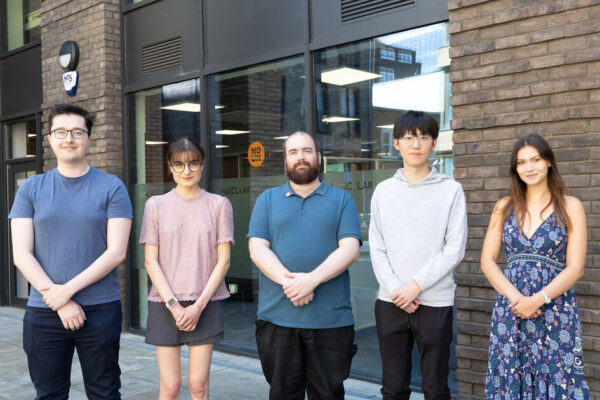We’re delighted to announce we’ve awarded just over £1 million to the LifeArc Centre to Treat Mitochondrial Disorders (LAC-TreatMito), led by Professor Patrick Chinnery at the University of Cambridge. The centre aims to improve diagnostics and develop treatments for mitochondrial diseases through its work.
We’ve awarded over £1m to the LifeArc Centre to Treat Mitochondrial Disorders

Mitochondrial diseases are a group of conditions in which small cellular structures called mitochondria don’t work properly. Mitochondria are the main producers of energy in cells and often referred to as the ‘powerhouse’ of the cell. Mitochondrial diseases mainly affect parts of the body that require the most energy to work properly, such as muscles, the heart, liver, brain, nerves and pancreas.
There are currently no cures for these conditions, and the development of treatments is often slowed by challenges in diagnosis and a lack of available tests, also known as biomarkers, to measure how mitochondria work in those people with symptoms of mitochondrial conditions.
A new centre for mitochondrial diseases
The LAC-TreatMito, led by Professor Patrick Chinnery, aims to address the hold up in getting treatments from the laboratory to clinics by setting up a national platform to bring new treatment approaches into clinical trials. We’re contributing just over £1m to the £7.5m contributed by LifeArc.
“With this support from LifeArc, the Lily Foundation and Muscular Dystrophy UK, we are establishing a centre dedicated to improving diagnostics and advancing new treatments for mitochondrial diseases, ultimately improving the quality of life for people living with these conditions. This is not just an investment in research, but in the future of healthcare and the wellbeing of communities with rare diseases across the country.”
With Professor Chinnery as the Principal investigator, the centre boasts some of the UK’s leading experts in the field of mitochondrial disease, including Professor Rita Horvath, University of Cambridge, Professor Robert Taylor, Newcastle University, Professors Robert Pitceathly and Mike Hanna, UCL. Clare Chatfield from the Lily Foundation will also be part of the Centre, and it will have formal links across the UK, including with teams in Manchester, Birmingham and Oxford.
The aims of the centre
The LAC-TreatMito team aims to show within five years that six new advanced therapies (therapies that are based on genes, tissues or cells, such as gene therapies, exon-skipping, cell therapies and others) have the potential to work. They’ll also work to develop new biomarkers for mitochondrial diseases in clinical trials.
The centre aims to improve the diagnosis of mitochondrial diseases nationwide, connecting patient groups, knowledge and infrastructure, to continue bringing new treatments into trials even after this grant has finished. This will be achieved in partnership with the Lily Foundation, linking patients with universities and industry globally.
“”The LifeArc Centre to Treat Mitochondrial Disorders will allow us to break new ground in advancing treatments for diseases that have long impacted patients’ lives. We’re not only focused on developing innovative therapies, but also on training the next generation of clinical scientists who will carry this mission forward. This is a team effort, and our goal is clear—to improve the quality of life for those living with mitochondrial diseases and bring hope where it’s needed most..”
As part of this grant award, as well as supporting research carried out by the centre, we’ll be funding five post-doctoral researchers. These are doctors with a PhD who want to develop their research career further. Our support will help them to become independent researchers in the future and to form part of the next generation of neuromuscular specialists contributing to research beyond mitochondrial diseases and other muscle wasting conditions through the NHS.
Benefits for our community
The expectation of the centre is their work will improve diagnosis of mitochondrial diseases and bring new treatments into the clinic. This will have a beneficial effect on people with these conditions. Early diagnosis means a treatment can be given sooner, preventing the early onset of symptoms and hopefully reducing the speed of progression.
Importantly, this is a large, nationwide study, and any results could impact on how the condition is managed across the UK.
Acknowledgements


